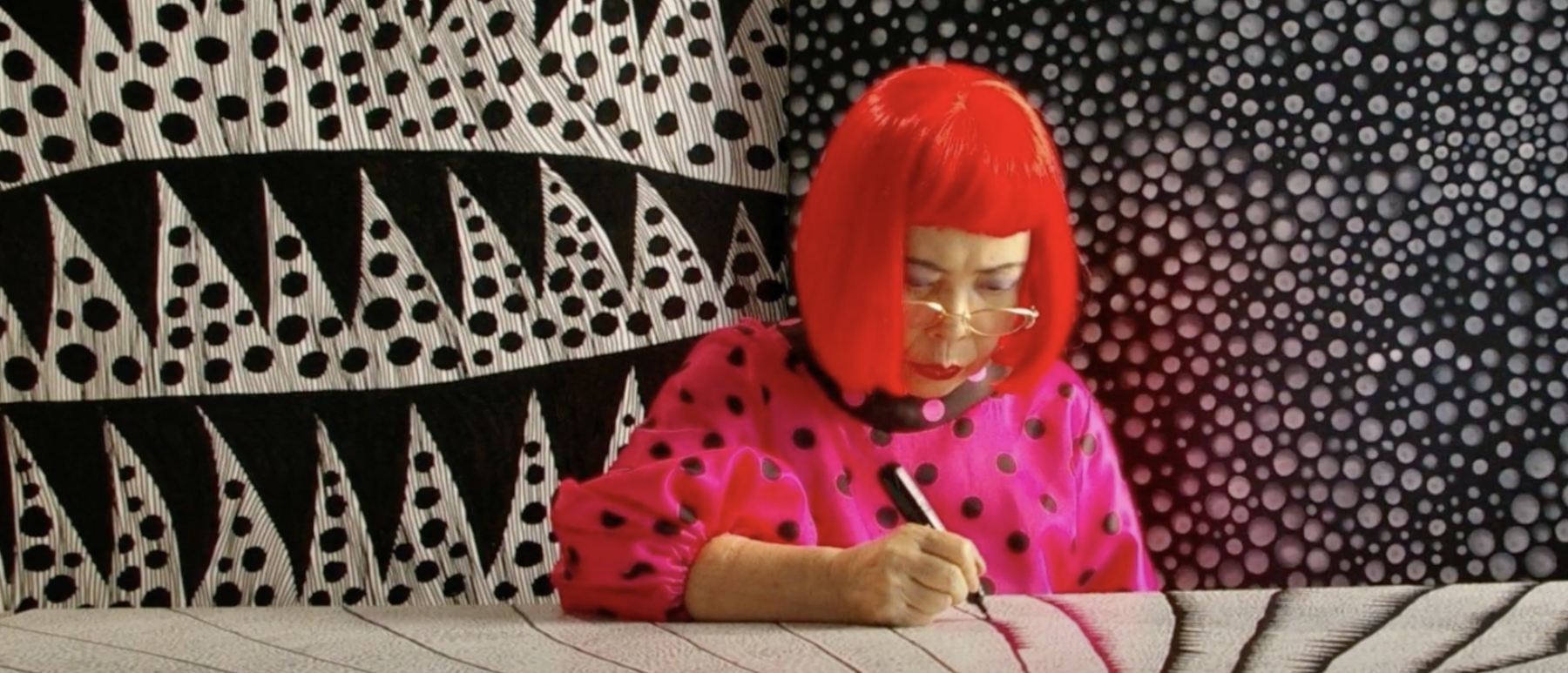Meet Yayoi Kusama, "rebel, scandal, iconoclast"
This month 57 years ago, Japanese artist Yayoi Kusama's first infinity room was installed in New York. When one walked in, they would be surrounded by endless mirror reflections of the hundreds of fabric phallus representations, their red polka dots making the experience more disorienting. As curator and author Catherine Taft wrote in a monograph on the artist, "Meant to be engaged with, the stuffed protuberances … enveloped the viewer, creating an almost psychosexual encounter with one's own body and image."
Kusama became famous for other infinity room installations, but her work went beyond that, with iconic polka dot-marked sculptures; infinity net paintings; "happening" art performances, which involved performing gay wedding ceremonies; and more. Hers is a huge art legacy that's still growing, but in our fourth episode of The Remix: Asian Americans Telling the History of Asian Americans, Mu artist Kathryn Fumie gives you the best introduction possible. Hosted by Anna Hashizume, this episode highlights the major themes in Kusama's work, memorable moments in her life, and the causes she fought for. (While Kusama was born and raised in Japan and later returned there, she lived in New York for more than a decade.)
Kathryn Fumie, Remix author
Fumie first discovered Kusama when she came across the biographic Infinity documentary on Netflix during the early days of the pandemic. The artwork caught Fumie's eye, yes, and she felt kinship over a shared Japanese heritage, but she was also drawn to the non-esoteric motivation behind Kusama's pieces.
"The whole notion that artists need or should suffer in order to make good art, I don't think that necessarily has to be true," she says. "I think there's a place for healthy, stable people to make fantastic art, but it's interesting to hear how public she is with her struggles with her mental illnesses and her mental health, how public she is about that, how she tries to deal with that through her art. I was struck by her bravery when she talked about it, especially in an era when that was way taboo."
Kusama is now more than 90 years old and still creating art. She was recently commissioned as one of two artists to create mosaic murals totaling 2,400 square feet in New York's new Grand Central Madison terminal, to be unveiled in December. Minnesotans, on the other hand, can see one of her paintings at the Minneapolis Institute of Art, and the Walker Art Center also has four of her pieces. While Kusama’s work can certainly speak for itself, Fumie's Remix video gives even greater understanding and access to some of the ideas that are baked into the art.
"Her version of feminism really spoke to me in such a male-dominated art scene, that she could speak to it and work against [the patriarchy]," Fumie says. "So many of the things that she's dealing with in the '70s are things that we are dealing with now, and maybe have gotten a little further on, like gay marriage, like marriage ceremonies, like you know, protesting against war. Those all feel so prevalent and relevant now even though she was dealing with it in the '70s. So it was pretty easy to see myself reflected in her point of view."


